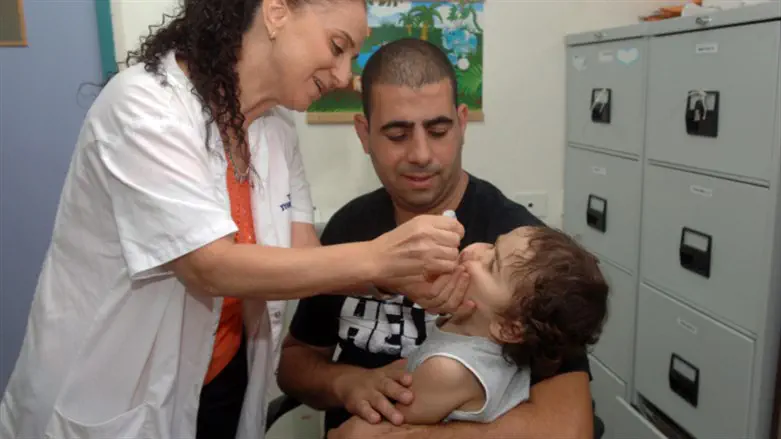
An outbreak of a new strain of poliovirus type 2 has been identified in the past few weeks in multiple cities in Israel, Kan 11 reported Tuesday evening.
The virus was identified in the sewage in Jerusalem, Tiberias, Beit Shemesh, and other cities across Israel.
Unlike previous strains found in the sewage, however, the new strain is resistant to the oral polio vaccine (OPV), which is given in drops. At the same time, the inactivated polio vaccine (IPV), which is given in a series of four injections, is considered highly effective against the strain.
While the IPV protects the person who receives it with a success rate of 99-100%, it still allows the recipient to become a carrier of polio, passing the virus to others who are unvaccinated. The OPV, on the other hand, does not allow the recipient to become a carrier and is considered effective after just one or two doses, thus effectively halting outbreaks and ensuring that even those who are unvaccinated are still provided with protection.
Israel's Health Ministry confirmed the Kan 11 report and responded that there is indeed evidence of a new strain of polio type 2. The strain is part of an outbreak that began outside of Israel and was identified in New York and London.
Meanwhile, the Health Ministry and the four HMOs are working to identify and vaccinate children who have not yet received the IPV, with the goal of protecting them from possible paralysis.
